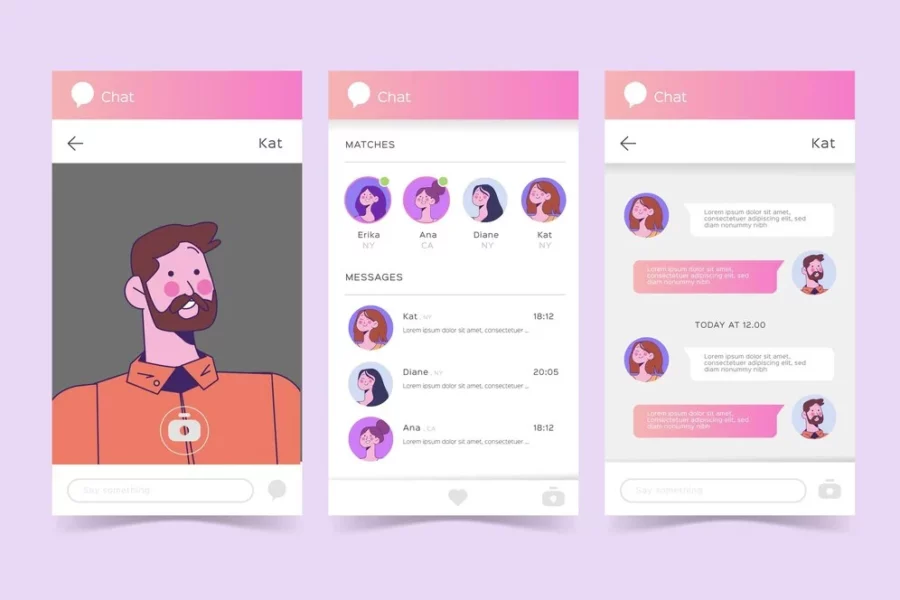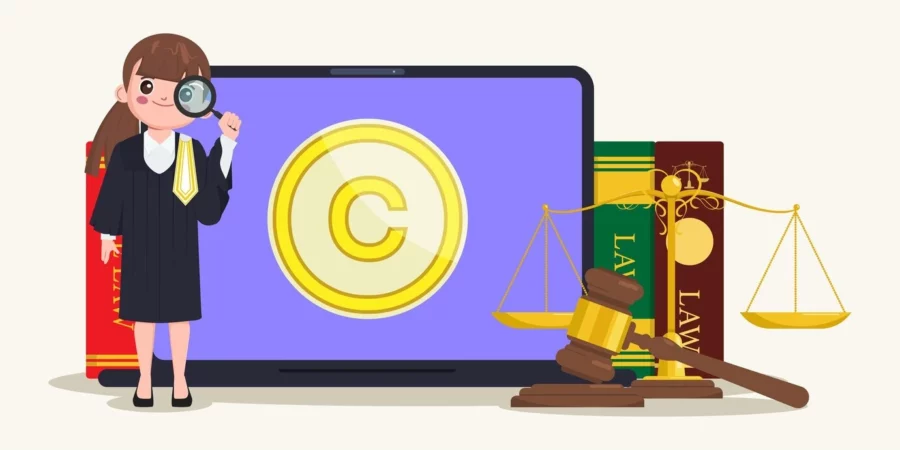Nowadays, more and more people are interested in meeting virtually on dating apps, thinking they will get a lot of choices. Online dating has become a mainstream way to meet people, but the same convenience also attracts bots, catfish, and scammers who exploit trust for clicks, money, or control. Surveys reported by industry outlets show that fake profiles are a routine hazard; for example, a Pew study summarised by DatingNews found that over half of online daters had encountered fake profiles. Common red flags include overly perfect or stock-like photos, thin or generic bios, rushed intimacy, reluctance to video chat, and any request for money or sensitive information—patterns echoed in recent safety explainers.
This guide will help you spot those signals early, verify identities without oversharing, and utilise in-app safety tools, allowing you to date online with more confidence and less risk. After all, you don’t want to spoil your mood in dealing with these fake dating profiles, which can impact you and your family, too.
Protect Your Brand & Recover Revenue With Bytescare's Brand Protection software
Why Are Fake Dating Profiles Created?
To Scam or Defraud People Financially
Fraudsters on dating apps aren’t looking for love at all. They’re looking for how to play with your emotions and fool you. They may build an emotional knot with you here first, and once you get trapped, then they will begin their real game. Out of nowhere, they’ll ask for help—maybe money for a sudden “emergency,” travel costs to finally meet you, or gift cards for something urgent. Others will try to steer you toward paid chats or subscription sites.
For Catfishing or Emotional Manipulation
Have you ever realised this? You have found your dating partner, and you are chatting day and night. You have shared everything about yourself, but the opposite side is very silent about their life stories. You are keen to meet or make a video call, but there’s always an excuse. It may be a sudden family emergency or unexpected travel plans. The truth? That person might not even exist. Just to make you emotionally weak and dependent on them, they are using these tactics.
To Gather Personal Information (Phishing)
Ever chatted with someone online who, instead of talking about plans or hobbies, keeps slipping in little requests for “details” about you? It might start with something like your phone number, email, or other sensitive information, such as OTPs, ID photos, or even bank details. They may ask you just to confirm that you are not a fake dating profile, but a real person, and they are seeking these things. In reality, these crumbs of personal data can be pieced together for identity theft, blackmail, or worse. By the time you realise what’s happening, they’ve already collected enough to cause real trouble in your life.
To Promote or Advertise Services
Some dating app fake profiles are built to drive traffic to external sites, boost paid chat time, or covertly advertise products and services. They may drop links early, reuse templated bios, and avoid video calls.
To Spy or Stalk Someone Anonymously
Bad actors create burner identities to monitor a target’s activity, collect personal updates, or probe boundaries without revealing their true identities—posing significant safety and privacy risks.
For Trolling or Harassment
Fake accounts can be used to bully, threaten, or mass-report users while hiding behind anonymity, allowing them to operate with impunity. They will give you vague answers, very few details, and then push you to some fishy apps where verification and other checking rules are very limited.
Common Signs of a Fake Dating Profile
If you are uncertain how to spot fake dating profiles, then read these common signs given here:
Too Perfect or Model-Like Photos
All-professional, hyper-polished pictures (or images that feel stock/AI) are classic bait. Do a quick reverse-image search and be cautious if the person seems “too perfect” or pushes you off-app.
Very Little Personal Information
Bots and fake dating profiles often show a name with almost no bio, minimal details, or only a social handle to move you elsewhere. Sparse profiles are a red flag—proceed slowly and verify.
Inconsistent or Generic Conversations
Watch for mismatched facts and strained language. The conversations may seem very robotic or mechanical if you chat for a few days, as if the total conversations are scripted, with no emotional depth or stories, just a dry exchange. And there is no flow or consistency in their topic. These are definitely red flags.
Avoiding Video Calls or Real-Time Interaction
If you are asking for a video call or really want to meet that person face-to-face, they are avoiding this continuously. It can definitely be a fake thing.
Moving Too Fast Emotionally
“Love bombing” (rushing intimacy, declarations of love before meeting) is a common manipulation tactic to build quick trust. Slow the pace and verify before making an investment.
Protect Your Brand & Recover Revenue With Bytescare's Brand Protection software
Is It Illegal to Create a Fake Dating Profile?

People often think a fake profile is just a prank. Something silly. But the reality? It can spiral into legal and emotional trouble very quickly. In fact, depending on what you do with that account, you might even be breaking the law.
Impersonation and Identity Theft
The biggest problem shows up when you use another person’s identity. If you take their photos, name, or other details, that’s not just rude—it can be against the law. At that point, you’re not just “bending the truth”—you’re stepping into identity theft or impersonation, which can be illegal depending on where you live.
U.S. law: There’s a federal rule from 1998—the Identity Theft and Assumption Deterrence Act. It makes it a crime to use someone else’s personal information to trick people or commit fraud.
State rules: States pile on their own penalties. In Texas, online impersonation can bring fines and even up to a year in jail. In California, pretending to be someone with the intent to cause harm can lead to fines and civil lawsuits.
Harassment and Stalking
Now, even if you don’t steal another person’s identity, problems arise when you use a fake account to harass or stalk.
Think about it:
- Someone creates a fake account to follow or provoke an ex.
- Or they pretend to be someone new to trick a romantic interest into revealing private info.
That’s where cyber-harassment laws come in. The U.S., the UK, and Australia—all of them take online harassment seriously. So while creating a profile isn’t illegal by itself, what you do with it could definitely cross the line.
Fraud
Here’s where it gets very clear: money.
Romance scams usually follow a pattern—fake profile, fake story, emotional hook, then the request for money. Unfortunately, many people fall for it. The U.S. Federal Trade Commission reported that in 2021 alone, people lost about $547 million to dating scams.
That isn’t just deception—it’s fraud. And it’s a serious criminal offence.
How to Protect Yourself on Dating Platforms?

Verify Profile Details and Photos
Run a reverse-image search on profile pictures, skim their public footprint, and ask for a brief video call before moving off the app. If names, timelines, or images don’t line up—or they dodge real-time chat—treat it as a red flag.
Use In-App Messaging Only
If you want to be safe, then keep your messaging inside the built-in app interface only. If someone tells you to shift to platforms like WhatsApp/Telegram, then stay away.
Avoid Sharing Sensitive Personal Information
Don’t share your sensitive personal information like home/work address, ID images, OTPs, bank/UPI details, or intimate photos. Scammers can give you sleepless nights due to your foolish activities.
Be Sceptical of Love-Bombing or Overly Fast Intimacy
Don’t fall into the trap of instant love proposals. Go slow—ask plenty of questions before you commit to someone you barely know.
Report Suspicious Accounts Immediately
If you are sure that there are some fishy things in the profile, then use the app’s report/block tools and file a complaint with the authorities. In India, report via the National Cybercrime Reporting Portal (cybercrime.gov.in) or call 1930 for financial fraud; include screenshots and transaction details.
Protect Your Brand & Recover Revenue With Bytescare's Brand Protection software
Why Creating a Fake Profile is Never Worth It
On the surface, setting up a fake dating profile might feel easy. Maybe you’re curious, maybe you want attention, or maybe it’s just a dare. But honestly? It never ends well.
Honesty really does matter. When you start off pretending, you’re building everything on a lie. That usually means guilt, stress, and the constant fear of being found out. And trust? You can’t build it when the whole story is made up.
Chances are, you’ll get caught anyway. Dating apps today are much smarter than they used to be. With verification tools and quick searches, it doesn’t take long for a fake account to be flagged. Best case, you get banned. Worst case, if someone gets hurt in the process, you might face legal trouble.
And here’s the part people don’t think about: you end up missing out on real connections. Fake profiles trap you in circles of lies. Even if you’re talking to dozens of people, none of it feels genuine. After a while, it gets exhausting, and instead of feeling connected, you feel more isolated.
So, when you weigh it all out—the guilt, the stress, the risk of bans or even legal issues—it’s just not worth it.
Key Takeaways:
- A fake account on its own isn’t automatically illegal. But link it to fraud, impersonation, or harassment and you’re over the legal line—fast.
- Most dating apps don’t allow fake accounts at all, and they’ll boot you if they catch one.
- Using fake photos, stolen details, or harassing people through a fake account can open the door to lawsuits or even criminal charges.
Conclusion
In the end, fake dating profiles aren’t “just a prank.” They cross lines—harassment, privacy, sometimes the law—especially when catfishing or identity theft is in the mix. Use borrowed photos and made-up accounts, and you don’t just fool strangers; you break trust across the app. And yes, people do get reported and fined when harm follows.
If your name and reputation matter, don’t leave it to luck. Use tools built for this—Bytescare Fake Profile Remover can sniff out and remove impostors before they burn you. Curious how it works? Schedule a demo and see it clean house in real time.
If something already feels off, report it. Keep screenshots. Let the platform—and, if needed, law enforcement—step in. Protect yourself and the people who are there for the right reasons.
The Most Widely Used Brand Protection Software
Find, track, and remove counterfeit listings and sellers with Bytescare Brand Protection software

FAQs
Is catfishing illegal?
Yes, catfishing, which involves using a fake online identity to deceive or manipulate others, is a form of fraud and can be illegal.
What should I never share on a dating app?
Never ever share your sensitive personal information like home/work address, ID images, OTPs, bank/UPI details, or intimate photos.
How common are fake profiles on dating apps?
They’re more common than most people think. Studies show that over half of dating app users have come across at least one fake profile while having interactions.
Can fake profiles use stolen photos of real people?
Definitely yes. They can steal it from social media platforms, modelling portfolios, and the person is totally unaware.
Are premium dating apps safer than free ones?
Not always. Premium apps may offer extra safety features like profile verification, blue ticks, etc., but they also face fake accounts.
What can I do to maintain a safe and respectful online community?
Show up authentically, give people space, and call out suspicious activity—simple steps that protect everyone.
Ready to Secure Your Online Presence?
You are at the right place, contact us to know more.

